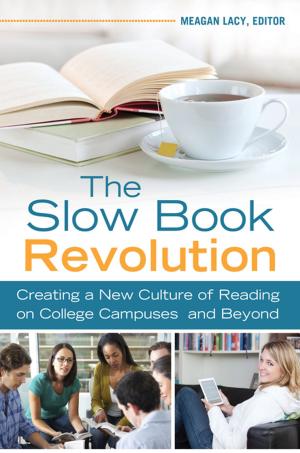Radio 2.0: Uploading the First Broadcast Medium
Nonfiction, Science & Nature, Technology, Telecommunications| Author: | Matthew Lasar | ISBN: | 9781440832444 |
| Publisher: | ABC-CLIO | Publication: | March 14, 2016 |
| Imprint: | Praeger | Language: | English |
| Author: | Matthew Lasar |
| ISBN: | 9781440832444 |
| Publisher: | ABC-CLIO |
| Publication: | March 14, 2016 |
| Imprint: | Praeger |
| Language: | English |
How did popular radio in past decades—from President Franklin D. Roosevelt's "Fireside Chats" in the 1930s through Top 40 music and Rush Limbaugh's talk radio empire—shape American society? How did devices and systems like the iPhone, Pandora, and YouTube turn the radio industry upside-down? Does radio still have a future, and if so, what will we want it to look like?
Radio 2.0: Uploading the First Broadcast Medium covers the history and evolution of Internet radio, explaining what came before, where Internet radio came from, and where it is likely headed. It also gives readers a frame of reference by describing radio from its introduction to American audiences in the 1920s—a medium that brought people together through a common experience of the same broadcast—and shows how technologies like digital music and streaming music services put into question the very definition of "radio." By examining new radio and media technologies, the book explores an important societal trend: the shift of media toward individualized or personalized forms of consumption.
How did popular radio in past decades—from President Franklin D. Roosevelt's "Fireside Chats" in the 1930s through Top 40 music and Rush Limbaugh's talk radio empire—shape American society? How did devices and systems like the iPhone, Pandora, and YouTube turn the radio industry upside-down? Does radio still have a future, and if so, what will we want it to look like?
Radio 2.0: Uploading the First Broadcast Medium covers the history and evolution of Internet radio, explaining what came before, where Internet radio came from, and where it is likely headed. It also gives readers a frame of reference by describing radio from its introduction to American audiences in the 1920s—a medium that brought people together through a common experience of the same broadcast—and shows how technologies like digital music and streaming music services put into question the very definition of "radio." By examining new radio and media technologies, the book explores an important societal trend: the shift of media toward individualized or personalized forms of consumption.


![Cover of the book Economics: The Definitive Encyclopedia from Theory to Practice [4 volumes] by Matthew Lasar](https://www.kuoky.com/images/2017/march/300x300/9780313397080-6kIQ_300x.jpg)



![Cover of the book Guns and Contemporary Society: The Past, Present, and Future of Firearms and Firearm Policy [3 volumes] by Matthew Lasar](https://www.kuoky.com/images/2015/december/300x300/9781440832185-IKPU_300x.jpg)

![Cover of the book African Americans at Risk: Issues in Education, Health, Community, and Justice [2 volumes] by Matthew Lasar](https://www.kuoky.com/images/2015/june/300x300/9781440800764-aNDa_300x.jpg)


![Cover of the book Lesbian, Gay, Bisexual, and Transgender Americans at Risk: Problems and Solutions [3 volumes] by Matthew Lasar](https://www.kuoky.com/images/2018/february/300x300/9781440832369-Krrp_300x.jpg)



